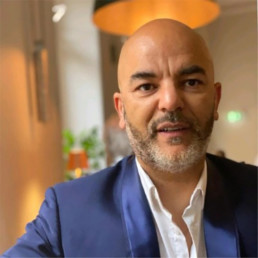
Written by Matthew Page
Intersectionality and Identity Consultant | Trustee at The Fostering Network | Transformative Coach | Speaker | Award Winning Lived Care Experienced Leader | Doggie Dad
In today’s dynamic and sometimes challenging landscape, the conversations around diversity, equity, and inclusion (DEI) have never been more critical. We’re seeing a shift, a recalibration, and in some corners, even a fear of engaging with DEI initiatives. Yet, it’s precisely in this environment that the power of Employee Resource Groups (ERGs) becomes even more pronounced. However, if ERGs are to truly thrive and deliver on their promise, they must embrace a crucial concept: intersectionality.
For too long, ERGs have often operated in silos. We have a Women’s ERG, a BAME (Black, Asian, and Minority Ethnic) ERG, an LGBTQ+ ERG, a Disability ERG, and so forth. Each group does incredibly important work within its specific remit, advocating for its members and fostering a sense of community. But imagine the amplified impact if these groups, rather than standing alone, could discover their shared struggles and collective strengths.
This is where intersectionality isn’t just a buzzword; it’s the glue. It’s the understanding that individuals hold multiple identities that intersect and overlap, creating unique experiences of both privilege and disadvantage. The term was originally coined by American legal scholar Kimberlé Crenshaw in 1989. She used it to highlight the “double discrimination” faced by Black women, who often experienced both racism and sexism but found that the legal system at the time couldn’t address the combined effects of the two.
My work is all about introducing people to this basic, yet profoundly powerful, principle. I help ERGs recognise that while their specific focus is vital, there are countless threads that connect them. When a Women’s ERG and a BAME ERG realise they are both fighting for equitable pay, or when a Disability ERG and an LGBTQ+ ERG discover shared ground in advocating for inclusive language, that’s when the magic happens.
Pulling various ERGs together through the power of intersectionality is something I’m seeing time and time again, and it’s truly powerful in the current climate. We should all be working and fighting the cause in a much more united way, shouldn’t we? This collective approach not only strengthens the impact of each individual ERG but also fosters a more inclusive and understanding workplace culture for everyone. It moves us beyond a ‘them and us’ mentality towards a ‘we’ that is far more resilient and effective.
My journey to understanding the profound importance of identity and belonging began in a very personal way. Growing up in foster care, I had no real sense of my own identity. I was told my father, whom I had never met, was from Jamaica, which was the extent of my knowledge about my roots. It wasn’t until I took part in the TV show DNA Family Secrets that my world truly opened up. The show discovered that my family actually originated from the Seychelles – a revelation that completely shifted my understanding of who I am and where I come from. This personal experience of uncovering my intersecting identities, and the sense of belonging it brought, deeply informs my passion for helping others find theirs within organisations.
I have the privilege of working with fantastic organisations like NatWest, Transport for London, and the British Transport Police, guiding their ERGs through this journey. We explore how to break down those silos, build bridges between groups, and harness the collective power of their diverse members. The results are not just theoretical; they are tangible shifts towards more unified advocacy, greater mutual support, and a more robust, future-proof approach to DEI.
Intersectionality isn’t just the future of ERGs; it’s the pathway to a more inclusive, empathetic, and ultimately, a more effective workplace for all. Let’s unite, understand, and empower one another.
